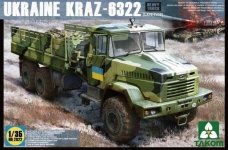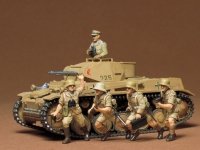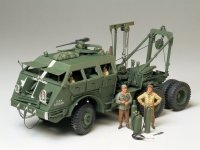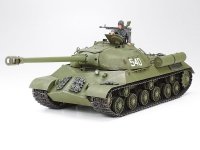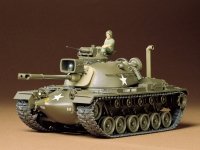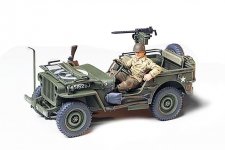-
Załączniki bezpieczeństwa
Załczniki do produktuZałączniki dotyczące bezpieczeństwa produktu zawierają informacje o opakowaniu produktu i mogą dostarczać kluczowych informacji dotyczących bezpieczeństwa konkretnego produktu
-
Informacje o producencie
Informacje o producencieInformacje dotyczące produktu obejmują adres i powiązane dane producenta produktu.Takom
-
Osoba odpowiedzialna w UE
Osoba odpowiedzialna w UEPodmiot gospodarczy z siedzibą w UE zapewniający zgodność produktu z wymaganymi przepisami.
Takom 2117X M46 Patton & 1/4 ton Utility Truck 1/35
Plastikowy model czołgu do sklejania, zestaw nie zawiera kleju ani farb.
M46 Patton – amerykański czołg średni z okresu powojennego, będący udoskonaloną wersją czołgu M26 Pershing i używany głównie podczas konfliktu koreańskiego.
Czołgi M46 z 73. batalionu czołgów ciężkich w Pusan w Korei
W maju 1946 roku, czołg M26 Pershing został przeklasyfikowany z czołgu ciężkiego na czołg średni. W porównaniu ze swoim poprzednikiem, czołgiem M4 Sherman, Pershing był konstrukcją zdecydowanie lepszą, ale nie sprawdzał się w roli czołgu średniego z powodu zbyt słabego silnika, niewielkiej prędkości i problemów z przekładnią. W styczniu 1948 roku rozpoczęto prace nad wymianą silnika na jednostkę o większej mocy (Continental AV-1790-3) i zastosowaniem nowego układu przekładniowego, oznaczonego CD-850-1. Nowy czołg otrzymał początkowo oznaczenie M26E2, ale dalsze modyfikacje sprawiły, że w 1949 roku zdecydowano się na zmianę oznaczenia na M46 General Patton, a w wersji skróconej M46 Patton. Był on pierwszym z serii czołgów nazwanych na cześć generała George'a Pattona.
Czołgi M46 wzięły udział w wojnie koreańskiej, gdzie okazały się zdecydowanie lepsze od północnokoreańskich T-34/85.
The M46 Patton was an American medium tank designed to replace the M26 Pershing and M4 Sherman. It was one of the U.S Army's principal medium tanks of the early Cold War, with models in service from 1949 until the mid-1950s. It was not widely used by U.S. Cold War allies, being exported only to Belgium, and only in small numbers to train crews on the upcoming M47 Patton.
The M46 was the first tank to be named after General George S. Patton Jr., commander of the U.S. Third Army during World War II and one of the earliest American advocates for the use of tanks in battle. After World War II, most U.S. Army armored units were equipped with a mix of M4 Sherman and M26 Pershing tanks. Designed initially as a heavy tank, the M26 Pershing tank was reclassified as a medium tank after the war. The M26 was a significant improvement over the M4 Sherman in firepower and protection. Its mobility, however, was deemed unsatisfactory for a medium tank, as it used the same engine as the much lighter M4A3 and was plagued with an unreliable transmission.
Work began in January 1948 on replacing the original power plant with the Continental AV1790-3 engine and Allison CD-850-1 cross-drive transmission. This design was initially called the M26E2, but modifications continued to accumulate; eventually, the Bureau of Ordnance decided that the tank needed its own unique designation, the M46.The upgraded M26 received a new power plant and a main gun with a bore evacuator.
Upon completion of the first model of the Detroit Tank Arsenal production line in November 1948, the M46 was christened after the late General George S. Patton.By December the Army had ordered several hundred. In July 1950 Detroit Arsenal was producing Pershings and M46s at a rate of over a dozen a day. In August 1950 President Harry S. Truman authorized funding for increased M46 production as part an expansion of heavy tank development program.
A total of 1,160 M46s of all variants were built.
The 1/4 ton utility truck is a small four-wheel drive vehicle that started development at the request of the US Army in 1940 and was put into actual battle in 1941. More than 640,000 units were produced during the war, and it is an important vehicle of the US military that is often cited as the weapon that led to the victory of World War II.



















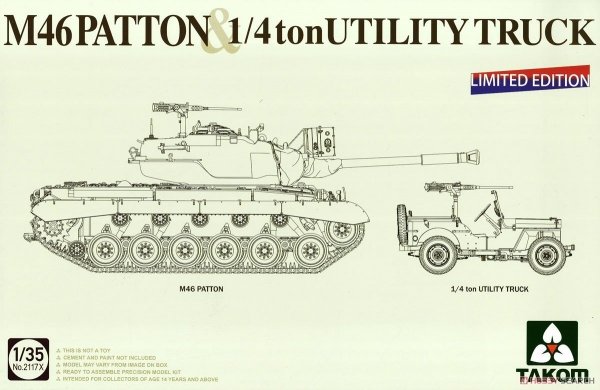



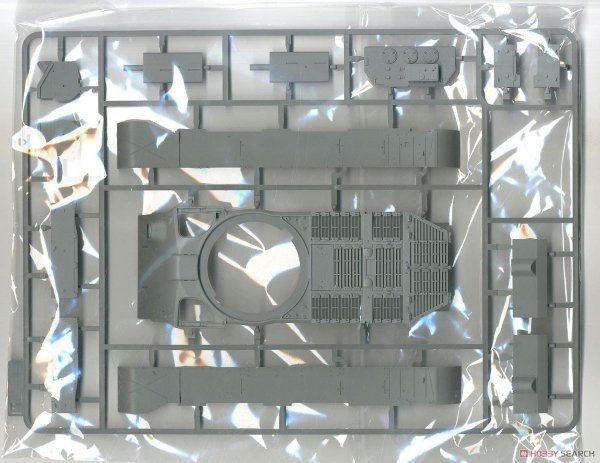


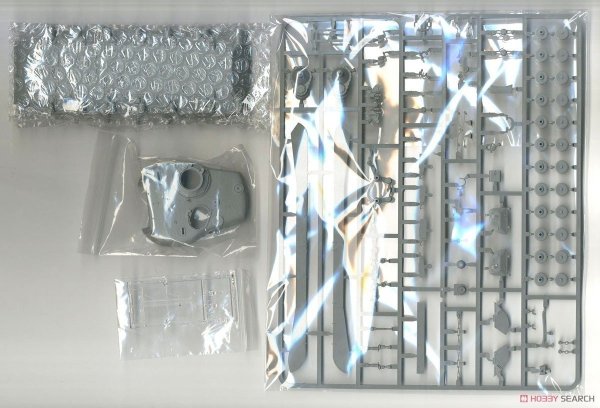

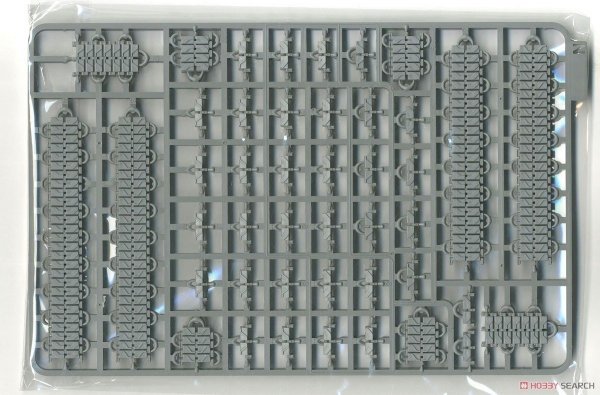

 1 szt.
1 szt.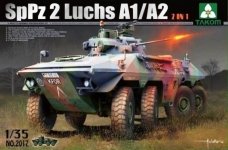
 36 szt.
36 szt.
